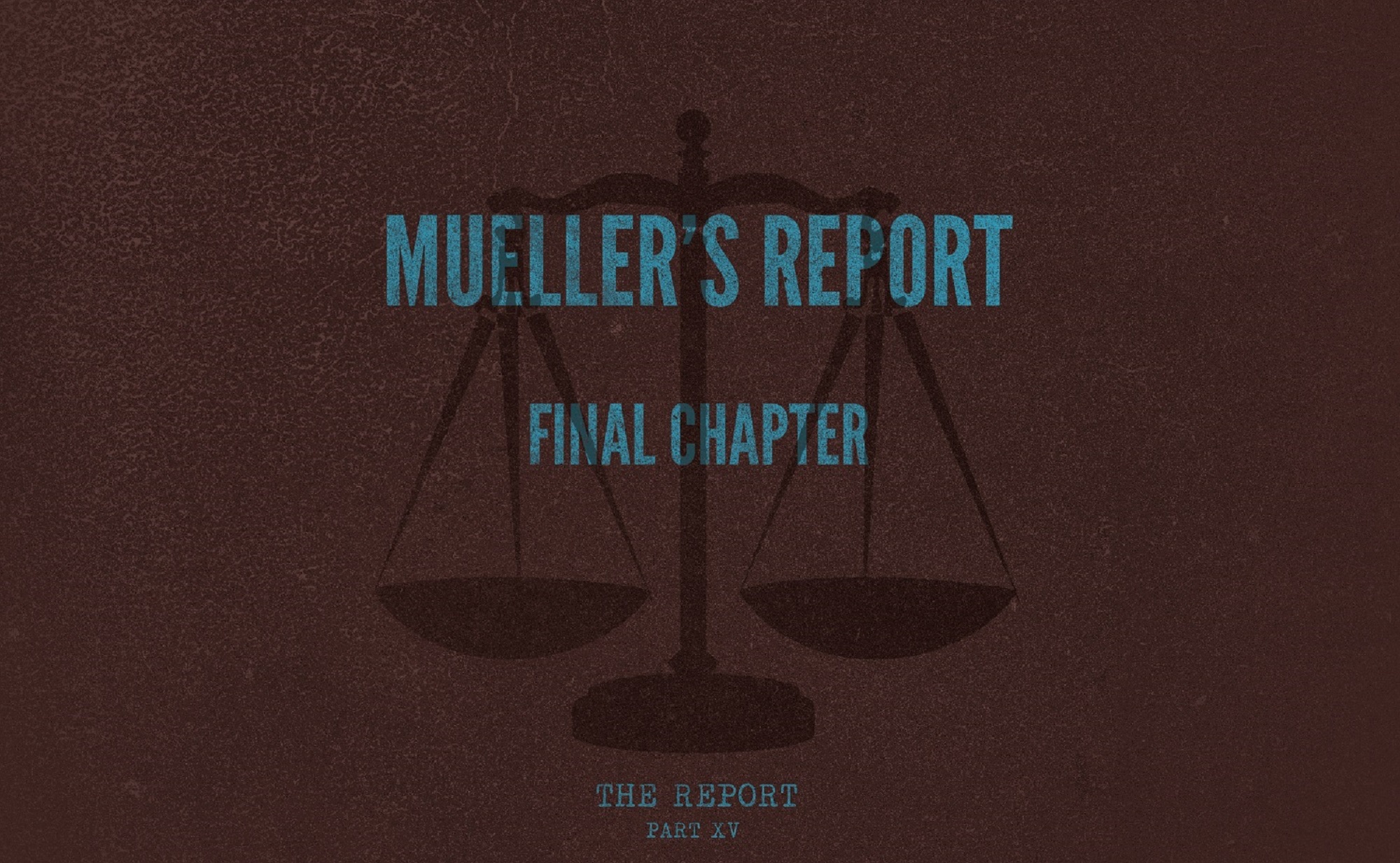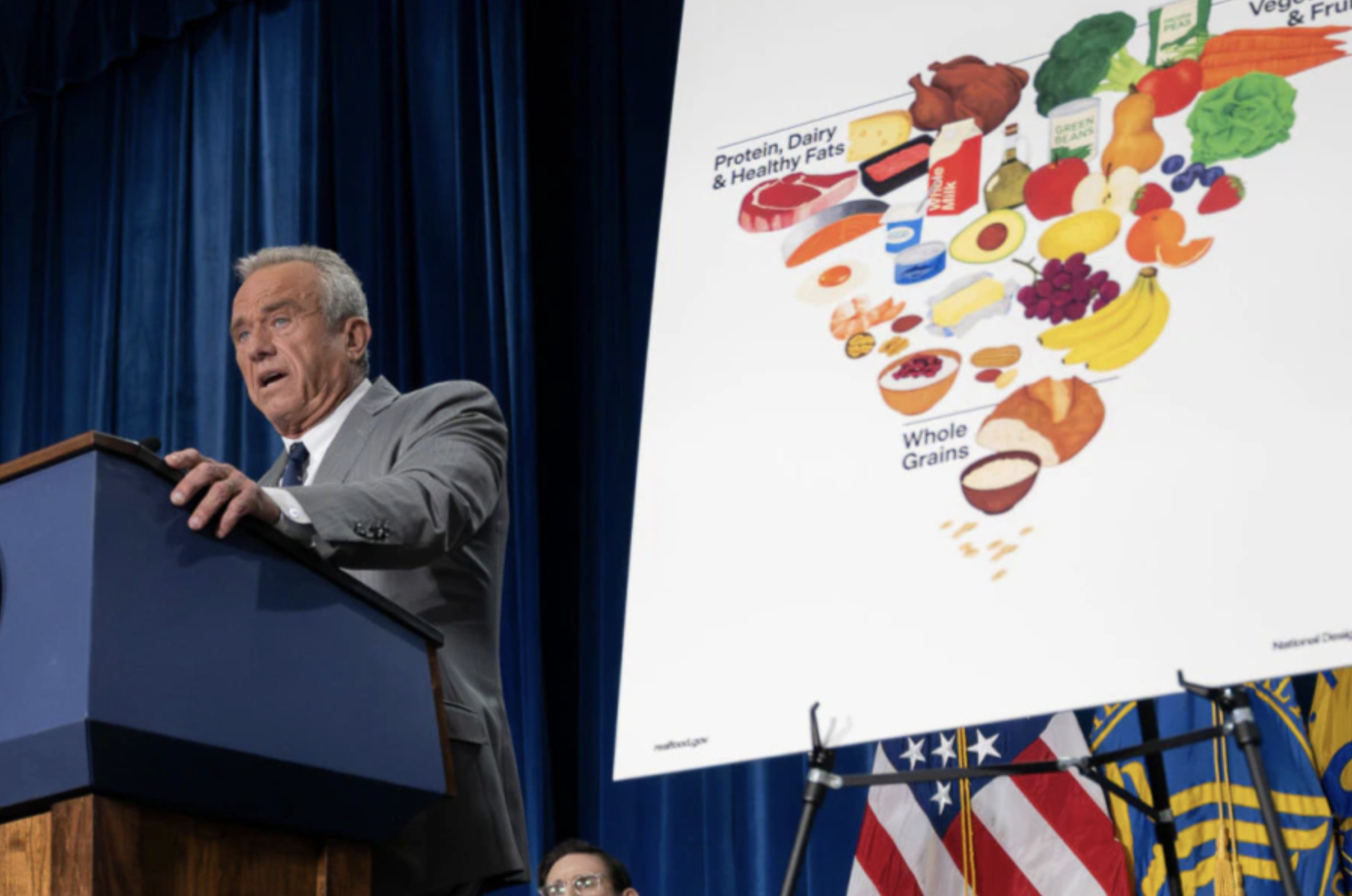The Report, Episode Fifteen: Mueller's Report
Today, we released the fifteenth episode of Lawfare’s narrative audio documentary, The Report, which recounts the story Robert Mueller lays out in his 448-page report.

Today, we released the final episode of Lawfare’s narrative audio documentary, The Report, which recounts the story Robert Mueller lays out in his 448-page report.
This episode details the challenges Mueller faced as he tried to reach a conclusion about the president’s conduct. After two years of investigating, Mueller confronts a series of hurdles in making his final judgment about obstruction of justice. Some factual questions stand in his way, but Mueller’s most formidable obstacles all come from the Department of Justice itself. An old Office of Legal Counsel opinion and the intervention of Attorney General Barr both mute the impact of Special Counsel’s final report:
The first seven episodes of The Report unpack Volume I; they tell the story of Russia’s efforts to interfere with the 2016 presidential election and the Trump campaign’s interaction and involvement with those efforts. Episode 1 covers the Russian social media operation and the activities of the Internet Research Agency. Episode 2 focuses on the Russian hacking campaign; the stealing of documents and emails from the Democratic National Committee, Democratic Congressional Campaign Committee and figures associated with the Clinton campaign; and the leaks of stolen materials timed to affect the U.S. election. Episode 3 covers the Trump campaign’s involvement in the distribution of hacked materials. Episode 4 tells the story of Trump Tower Moscow, which Donald Trump sought to build even as he was denying having any business in Russia, and Trump Tower New York, where Russian representatives showed up promising “dirt” on Hillary Clinton. Episode 5 recounts the stories of three men associated with the Trump campaign and their various ties to Russia: George Papadopoulos, Carter Page and Paul Manafort. Episode 6 details backchannel attempts by the Russians to influence the Trump campaign and transition team on policy matters—an effort to reboot U.S.-Russia relations one secret meeting at a time. Episode 7 covers the special counsel’s charging decisions—which individuals Mueller decides to prosecute, whose prosecutions he declines, and the reasons for his decisions.
We turned to Volume II in Episode 8, which offers the necessary legal and factual context to understand this second half of the report on possibly obstructive activity. Episode 9 details national security adviser Flynn’s lie to federal investigators about his phone call with the Russian ambassador and the White House response to learning of that lie. Episode 9 also charts the president’s turbulent relationship with FBI Director James Comey, which led the two men to a fateful Oval Office encounter. Episode 10 covers Attorney General Jeff Sessions’s decision to recuse from the Russia investigation, Trump’s reaction to the recusal, and the sudden firing of Comey. Episode 11 explains Trump’s furious reaction to the news of Mueller’s appointment and the development that the president was now personally under investigation. Episode 12 shows Trump’s attempts to cover up two damaging stories: one revealing his son’s troubling exchange with a Russian lawyer and one detailing the president’s demand to Don McGahn that he get rid of Mueller. Episode 13 details President Trump’s campaign to influence three of his associates who might reveal information about the President’s behavior to Mueller’s team. Episode 14 offers a look at the President’s ever-evolving relationship with Michael Cohen and Trump’s efforts to keep his former fixer “on the team.”
This episode explains how Mueller dealt with a series of legal and evidentiary challenges after he had completed the investigation. If there was no underlying crime, could the president have obstructed justice? Obstruction usually happens behind closed doors, but what if the president interferes with the investigation in plain view? How can you establish the president’s intent if Trump refused to sit for an interview with investigators? Is it even possible for a president's behavior to qualify as obstruction? Mueller successfully navigated these questions but struggled to deal with two obstacles from within his own agency, the Department of Justice. The special counsel felt bound by an Office of Legal Counsel opinion barring indictment of a sitting president. And Attorney General Bill Barr pre-empted the release of Mueller's report by issuing his own summary, filled with misleading generalizations about the special counsel’s conclusions. Mueller goes to testify before Congress a few months later, but he never strays from his laconic injunction: the report speaks for itself. Although Mueller’s work is done, the story is far from over. It’s up to Congress and to Americans everywhere to decide: is this all ok?
The Report has now surpassed two million downloads. The Report may be finished, but we hope you’ll continue to subscribe, rate and share it widely. Continue following this feed for bonus episodes and additional content in the future.
We are grateful to the William and Flora Hewlett Foundation and the Democracy Fund for their support for this project. If you want to support work of this type at Lawfare, please consider becoming a monthly donor by clicking here:



-security.jpg?sfvrsn=982907ba_5)


